#oyo empire
Text
The Horsemen of Oyo were considered to be the backbone of the Oyo army and the sight of them in their elaborate and impressive battle attire was a striking visual spectacle that was hard to miss. What big advantage did the Oyo Horsemen have over most of the armies they faced in all of West Africa?
57 notes
·
View notes
Video
Their size makes them arrogant and slow. Like their guns. But you don’t need a gun to use gunpowder, you just need a spark.
Sometimes, a termite can take down an elephant.
#The Woman King#Nanisca#Izogie#Amenza#Nawi#General Nanisca#Agojie#Dahomey#Kingdom of Dahomey#Oyo#Oyo Empire#Oba Ade#Fight#Rousing Speech#Dance#Video
83 notes
·
View notes
Text
The Rise of the Oyo Empire in West Africa
The Oyo Empire stands as a testament to the rich history and culture of West Africa. Spanning across present-day southern Benin and western Nigeria, this powerful empire emerged as the largest Yoruba-speaking state, thanks to the indomitable spirit and strategic prowess of the Yoruba people.
At its zenith, the Oyo Empire was a beacon of influence and authority in Western Africa from the mid-17th…
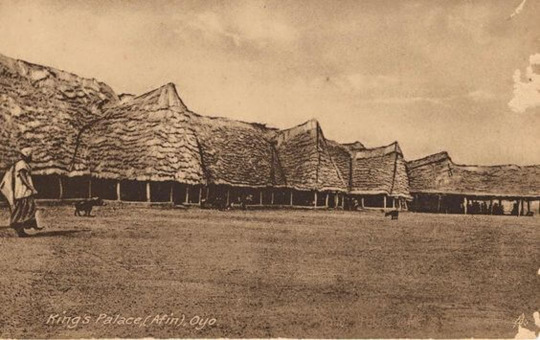
View On WordPress
#African empire#African History#african kingdoms#Benin#Benin History#Fon Kingdom of Dahomey#history#Oyo Empire#West African#West African history
2 notes
·
View notes
Text
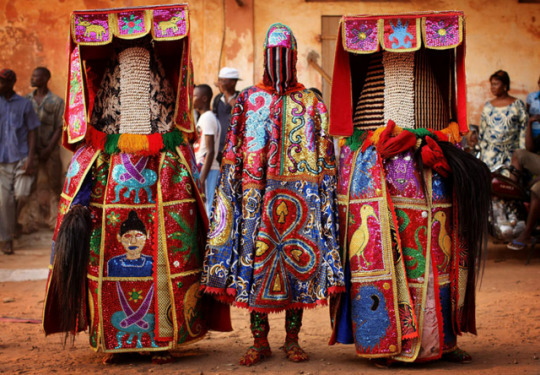
Yoruba Alarinjo Theatre
28 notes
·
View notes
Text
youtube
Best of 2022 Movies #11: The Woman King
Viola Davis can wow and amaze with certain regularity.
From the subtle perspective of Analeese from HTGAWM to the power broker in Amanda Waller, or even Denzel’s other half in Fences there is a charm to what she knows how to make big.
Such as her take of a general of a female army for a west African kingdom in the 19th century.
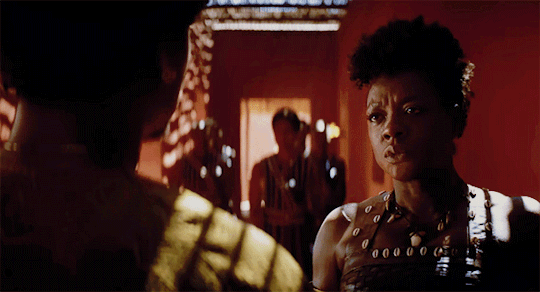
The strength that Nanisca brings is something to be admired.
Even with support from Lashana Lynch and Jon Boyega Viola owned this completely.
I can definitely see an EGOT coming her way.
SUM 22: Viola Davis gives Okoye a run for her money as the real inspiration for the Dora Milaje bring it in this ride.
#viola davis#dahomey#dora milaje#the woman king#best of 2022 movies#best of 2022#movies#11#tie#Youtube#lashana lynch#john boyega#nanisca#portuguese#agojie#king ghezo#oyo empire
3 notes
·
View notes
Text
Brief History of Iseyin, Nigeria’s Home of Aso-oke
Brief History of Iseyin, Nigeria’s Home of Aso-okeIseyin, a town in the country side of Oyo state, is an ancient city in Yoruba land which is rich in history, culture and tradition. This richness is evident in the socio-cultural relations displayed by the Iseyin natives, in the panegyrics used to describe it. Iseyin is approximately 100 km north of Ibadan and it is the fourth largest city in Oyo…
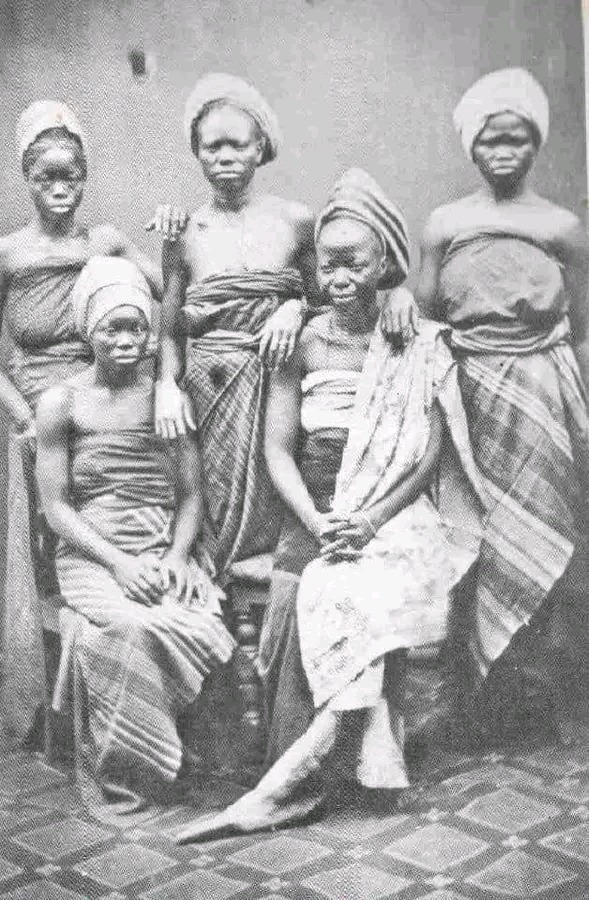
View On WordPress
#Alaafin#history of Iseyin#history of yoruba#Ife#ile ife#Iseyin#Oduduwa#oyo#Oyo empire#villagespec#Yoruba#Yorubaland
3 notes
·
View notes
Text
Here specifically is a list of the major personalities and events of the civil war that doomed the Oyo Empire:
#lightdancer comments on history#black history month#african history#military history#oyo empire#oyo civil war
0 notes
Text
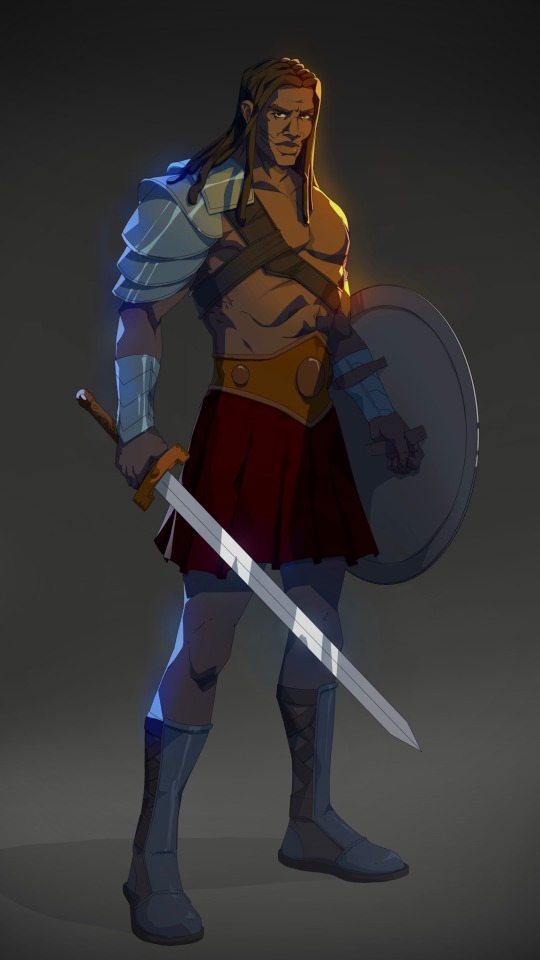
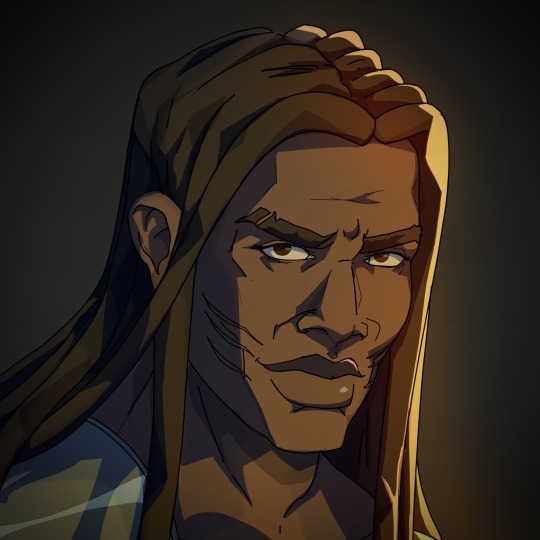
Ajaka character designs
#2d animation#character animation#action#collinskelvin#story board#2d animatic#2d character#character art#character concept#character design#gladiator#ajaka#oyo#king oyo#oyo empire#Rome#roman empire#africa#sword
1 note
·
View note
Text

New Blog. The Return of the Yoruba Nation
“The Yoruba religion is the science of allowing God to flow through you, so that each breath becomes a prayer, and as God breathes, you breathe.” – John Mason
To find out more about the industrious Yoruba people and Yorubaland before their country became a part of present-day Nigeria, and parts of Benin Republic and Togo Republic in West Africa, click here: https://rb.gy/pqfqcj
#yoruba#oduduwa#nation#god#spirituality#westafrica#nigeria#togo#benin#ife#oyo#kingdom#empire#ancient#medieval#motherland#diaspora#consciousness#education#history#america#slavery#sierraleone#chiefobafemiawolowo
0 notes
Text

Dahomey Amazons
Context, because I didn’t know about this historical anecdote until I saw this drawing tbh:
The Dahomey amazons were a women only military regiment of the Kingdom of Dahomey (modern day Benin) and the only exclusively female army in modern history. Their formation was the result of the male Dahomey population being decimated during various wars with bordering nations as well as the slave trade, of which they were both a active participant and a victim at the hand of the neighboring Oyo empire (modern day Benin and western Nigeria). They were disbanded in 1894 after the culmination of the Second Franco-Dahomean War when Domeny was annexed and made a French colonial protectorate. They were called ‘Amazons’ by europeans, but in their indigenous Fon language they called themselves ahosi (king's wives) or Mino (our mothers). Also, according to wikipedia they were armed with a number of Winchester repeating rifles sometime in the latter decades of the 19th century. I have no idea to what degree or how they were employed, but, tactically, that’s very forward thinking for the period! (the wiki, I haven’t read beyond that tbh..)

20 notes
·
View notes
Text

22 Most Famous and Powerful kingdoms/Empires in the History of Afrika....Know who you Are
1) The Songhai Empire (1401-1600) - Niger 🇳🇪, Mali 🇲🇱, Mauritania 🇲🇷, Senegal 🇸🇳, Nigeria🇳🇬, Guinea 🇬🇳, The Gambia🇬🇲, Algeria (south) 🇩🇿, Burkina-Faso🇧🇫, and Ivory Coast 🇨🇮, Chad 🇹🇩
2) The Kingdom of Kemet and Cush over 11k history before invaders - Egypt 🇪🇬
3. The Great Igala/Attagara Kingdom (800BC - 1700 AD)- Nigeria 🇳🇬/Uganda/Kenya/South Sudan/Congo/Sierra Leone
4) The Aksumite( Axum) Empire(100-940 CE) - Ethiopia/Eritrea 🇪🇹/🇪🇷
5) The Mali Empire (1235 to 1670)- Mali 🇲🇱, Senegal 🇸🇳, Burkina Faso 🇧🇫, Niger 🇳🇪, Guinea 🇬🇳, The Gambia 🇬🇲, Guinea-Bissau 🇬🇼, Ghana 🇬🇭
6) The Great Benin Empire(40BC-1897AD) - Nigeria 🇳🇬
7) The Empire of Ghana( Wagadu 601 - 1240) - Mauritania 🇲🇷, Senegal🇸🇳
8) The Great Zimbabwe Empire (1220-1450 CE)- 🇿🇼
9) The Ethiopian Empire ( Abyssinia ) 1270 (beginning of Solomonid Dynasty) until 1974 - Ethiopia 🇪🇹
10) The Kingdom of Kush (1069 BCE and 350 CE) - Sudan/ South Sudan 🇸🇩/🇸🇸
11) The Kingdom of Kongo ( 1301 - 1665 ) - Angola 🇦🇴 DRC 🇨🇩 Congo 🇨🇬 and Gabon 🇬🇦
12) The Oyo Empire.(1300s-1835) - Nigeria 🇳🇬
13) The Carthage Empire (814 BC–146 BC)- Tunisia 🇹🇳
14) Kanem-Bornu Empire. (1396-1893)- Nigeria 🇳🇬
15) The Mutapa Empire (c. 1450-1629)- Zimbabwe/Mozambique 🇿🇼/🇲🇿
16) Ashanti Empire. (1701 to 1901)- Ghana 🇬🇭
17) The Aro Confederacy (1690–1902)- Nigeria 🇳🇬
18) The Jolof Empire. (1350 to 1549)- Senegal 🇸🇳
19) The Kingdom of Nri (1100 until 1911)- Nigeria 🇳🇬
20) The Luba Empire.(1585–1889) - DRC 🇨🇩
21) The Nok Civilization.(1500 BC — c. 500) AD- Nigeria 🇳🇬
22) The Zulu Empire (1816-1897)- South Africa 🇿🇦
26 notes
·
View notes
Text
How Europe underdeveloped Africa and its legacy
first and formost before i break this down, this is not a post for white people to express their guilt, or savoir complex or love of historical revisionism. you'll not just be blocked, you'll go on a block list on this post, don't do it to yourself, i wont even have to be the one to do it. secondly this is a covering of the broad themes, lessons, and understanding within the book and what we should learn from it. third, i will often talk from my own perspective from which i will round to a larger context.
part 1- history and anthropology
As someone who has grown up black in the us, i grew up with a particular understanding or idea of Africa, the slave trade and the way America and Europe came about. you hear about tribal or ethnic disputes in the context of modern Africa and hear quite a lot of blatantly racist things about Africans. which caused me to get very into history, to which you learn when it comes to Africa there's not a lot of great places to start. this is something quite similar to the various indigenous peoples of the Americas as well. this has always been presented to me as a fault of Africans for not having history and is a long standing idea of white intellectuals from the 1800s to the Joe every man of today. the truth is Africa has history, there's no land, that has no history and Europe just devalues histories not associated with itself. there's a absolute glut of kingdoms, empires, languages, historical traditions, governing styles, cultural roles, trade networks etc etc. the fact of the matter is, that there's just very little Europeans want to learn about Africa that isn't to colonial ends, even today.
This is something Walter covers in great detail, to such a point that even as someone that has been purposely elbows deep into listening to everything i can find on African history i still had to go look up various pre-colonial kingdoms and figures. there is not a region of Africa that he doesn't take time to address in at least some detail, from Oyo and Ashanti on the west African coast, to the north of the Maghreb with Morocco and Algeria, east to the great lakes region, the horn of africa and south to the Zulus, koi koi, and Nguni peoples and kingdoms. The extensiveness to which he covers material forms of production, trade, and methods of historical preservation of culture, the types and breath of items, created and traded all through like cloth, glass, iron working, artistic ventures like bronze sculptures of benin and food production and cultization and the formations of various styles of rule, early democracy, and other such information put to bed nearly all of the non-nonsensical ideas that africa was a grand continent without progress, innovation, or skills and everything great, large, or more complex than rubbing to sticks together came from europe or arabs.
The book delves quite deep into the mythology of intense african slavery and violence which would be later used by europeans to justify colonization of africa to each other, said colonization, i will swing around back to much as the book does.
The middle passage, the triangle trade, the atlantic slave trade, these are all names for the event that was one of the chief reason to the economic and scientific take off of europe that would lead to industrialism, with the other being the colonization of the americans. stolen land and labor pushed the european world from not much a concern to anyone but those who had to deal with the crusades to the paramount power that controlled nearly all the sea trade, and held large swaths of territories of the world. we all know most of that, but walter ask the question on the other side of that coin. what did the slave trade do to africa? and why did they participate? the short answer is it changed the entire way african economies functioned and lessened the possibility of growth not just of kingdoms over territories, but of production and developement of sectors such as iron working, glass making, and agriculture. and in a very literal sense was one of the earliest forms of the phenomenon known today as brain drain and depopulation. we quite literally will never know the amount of people stolen or killed for slavery, we only know that as the rest of the world experienced high population growth africa and the americas started to experience intense depopulation. these phenomena weren't incidental they were known, and admitted as purposeful by figures qouted in the book. The african leaders at the time how ever were stuck between a rock and a hard place, many noted not just the importance of guns, but also recognized the importance of population growth at the onset. the game however being rigged from the start would have taken a miracle to over come. japan was the one country to escape colonialism in most meaningful senses, and that was because the dutch taught them how to produce guns and would trade with them "almost" as equals. these are also things addressed by rodney, the sale of arms was often highly lopsided, with Portugal and dutch traders only being willing to trade badly produced or broken guns, low quality powder and shot for slaves. this would not change until europeans would learn of other african products that they could make us of in their markets as raw materials such as ivory or kola nuts, this change would not happen for quite a while and mainly after the Europeans had already built their industrial bases and had taken total control of trade routes and begun to flood African markets with "cheap" products. the combinations of factors both purposeful and accidental shifted the African economies into a near total reliance on Europe economically and militarily but not yet politically. these are all expertly researched and explained to a point it is nearly impossible to refute any points. This points are all also something i can confirm from nearly every single source that ive looked into on African history.
part 2 -colonial "development"
This is a portion of history ill admit to doing my best to stay away from, generally much of my knowledge on it till this book has been on what happened with various kingdoms that fell in the late 1800s and early 1900s or by the various oral and 3rd hand accounts of what peoples familes, parents and even political elites went through. ill be frank, i did not go into the depth of the horrors of what happened with slavery, slave raiding, and its secondary effects, for this section and the next ill have to go through quite a lot. ill try to tone it down as best as i can, but on some of it even the implied parts are going to be horrid. I believe it is however important to face those head on, to truly understand the so called "white mans burden" or the reality of what that meant was.
colonialism meant making the final step, taking africa politically and physically. europe made the leap whole heartly to take all of africa, land, people, and any potential valuables, resources and to exploit everything they could get their hands on to the fullest extent possible. i do not use anything in the prior sentence lightly. Europeans like to play word games and often, the idea that they ended slavery in any meaningful sense is false, and ill come back to that in the final section. during the period of colonial control europeans destroyed just about anything of the prior rulers they could, and stole anything they could. theres a likelihood in my mind that theres many and african sculpture, painting, and cloth or glass work that sits in the home of a collector that got rich off the stolen plunder of africa. these includes many villages, cities, and palaces and shires and places of worship and places of craft. whole cities were destroyed such as kumasi, taking with it histories, architectural stylings and methods of production.
during this period was the final shift from internal political and economic growth to purely serving the empires to which ones lands belonged. no longer would rulers push for education reforms or challenges on religious bodies to strengthen any part of the nation, it was a total transformation into a form of state slavery. this is as metaphorical as literal, europeans would begin to change agriculture to be primarily centered around cash crops and mining labor to which labor was forced. people were made to pay taxes in the modern sense through the wages made through said labor. these taxes were in turn used primarily to fund the upkeep of oppressive forces and funding the check books of colonial governors, an insanely tiny portion of these funds were used for anything besides extracting wealth and resources.
the various governments put little to no money, research, or development into anything but cash crops and pulling things out the ground. the only times they put money into schools, training or even medical resources for people in African, it was for better wealth extraction and always the bare minimum. i believe (don't have the book in front of me rn) west Africa (from west of chad and south of Algeria) only had one university until the late 50s. the industrial sector of Africa was near completely killed, Africans in settler areas were not allowed to own even small scale industrial machinery such as cotton gins or fruit oil extraction machines, in non-settler state areas generally only peoples brought into Africa for the purpose of being a separated class of petite boug representatives for the colonizers were allowed to own industrial machinery. electricity was mostly for those same classes of individuals, hospital access, education access, pretty much anything you need for a community to survive esp in the modern era was highly restricted from Africans. To say that Europe "developed" Africa in any sense is beyond a bold faced lie, and it was something ,Rodney points out, that Europeans were quite proud of until they started to face push back for the level of humanity and exploitation they were facing. Once they started to get pushed out they changed their tune to the lie of African development and modernization. just like the lie of ending slavery for moral reasons and invading Africa to end slavery. Speaking of ending slavery in Africa, Rodney points to several figures who openly gloated about how they ran their colonial post or corporate holdings as slave plantations. king Leopold is one of the more famous examples of it, but far from the only one, many took delight in their cruelty. famine became endemic in regions that were the origins of many foods and cultivates crops, as all the agricultural process that could be shifted to cash crops were. Roads and trains ran from the mines and plantations to the seas and very little else. Various things needed to export raw materials were built with slave labor, like a airport in Kenya built by hand, no machinery via forced labor of Kikuyu peoples
Europe's only goal in Africa was land and profits, the same as in the Americas. genocide, slavery, starvation campaigns were common tools of colonizers in Africa all the way up to today, which i will re-address in part 4.
part 3 - education, traditional and political
Education is a very clear and important part of modern life, but also for building a nation, and self dependence, so it is of no wonder than colonizers thought that it should be restricted in Africa in regards to Africans. The various quotes and framing that Europeans used to dismiss the idea that Africans should have access to any form of formal education sounds exactly like quotes pulled from the most vicious of slavers of the prior centuries in the US and Haiti. One of the most prominent ideas that was education would "spoil" Africans, was a sentiment was also expressed by slavers. this section of the book is very much facts and figures on just how little access to education there was, how little funding went into it vs the amount of profits coming out of the various regions as well as how this was over come. two of the prime ways that was done according to the book and much of what Ive heard prior, was through the use of missionary schools or independent schools. These schools were primarily funded not by the colonial governments but by the peoples seeking education, their families, and so on, with the expectation that those educated would teach the rest of the family. education how ever was shown to not really pull people out of poverty nor to really give African peoples the possibility of positions of power or influence. this was such a near universally a rule, Amilcar Cabral, revolutionary leader and agricultural engineer even spoke to his personal experiences with being educated far beyond the man in charge of him yet having zero say in his job, his boss was renownly a dumb man. This was not an uncommon thing. Rodney goes well into it, and this just exemplifies how Europeans only saw Africans as a source of cheap and "unskilled labor". Access to education even if funded by the peoples seeking education themselves was clamped down on sharply once revolution was on the wind. Those who know the patterns of history though would have known that the clamping down made that worse, it simply accelerated the wants for education, as well as for independence.
part 4 - modern Africa and modern euro/america
When the cards started to fold on empire they took many different routes to lessen the fall for power, France tried blowing thing up and killing cattle and destroying things needed for civil life, a all call for genocide against Algerians. Britian, Portugal, most of them tried the same things, but they were pushed out in some ways, and when that became obvious they turned to the small group of political insiders they rapidly trained to take over in their stead. for those that weren't under the control of the colonizers they turned to the coup and military dictatorship. very few of the revolutionary leaders of africa were able to stay in power, many turned toward methods some would call authoritarian. without the context of what was going on and how unstable the situation was for these leaders and just how quickly and violently these revolutions could be overturned, it would be easy to take these figures as just becoming despots without reason, some of them really did become despots who just started functioning as neocolonial cops. This brings us to the modern era, and the current method of colonialism not just in africa but much of the world, Neocolonialism, or as i like to call it "home rule".
European nations were not ready to give up control, but they decided they would be willing to give up the appearance of direct rule. economic decisions, the political direction of countries, borders, very little of the modern africans situation was not directly decided on by europeans or americans. financial institutions such as the world bank and IMF lend these governments that had to try and start building actual nations with functioning economies loans with interest rates they would not be able to pay back in time, with conditions that made it even hard to meet the internal goals or pay back the loans and additional conditions of economic control by the IMF for failure to pay these loans. colonial governments such as France forced nations like Mali to pay taxes till recently, and nearly all the colonial powers set the trade rules between them and their "former" colonies in Africa. very few leaders were able to chart much of a path for progress or development that met the needs of the people before these various things snatched much of the independence back away from the people, pushing Africa away from shifting toward an agricultural sector that feed the people and an industrial sector capable of growing the economies or a scientific sector able to make adjustments or provide notable push in any direction. Fifa has more say in policy when they decide to host in a country than the people or even large segments of the governments of Africa. Nkrumah and Rodney both in their respective titles showcase this well, however neither would live to see much past the end of overt colonial rule.
Today there is a larger push against neocolonial rule and economic control than prior, organizations such as BRICS, china's one belt one road policy, and smaller grass roots works and various coups have shifted us to a different situation in Africa than what it has been in for the last 80+ years. However this is not a wholly different situation to that my grandmother would have heard of. much of the continent is still very much under euroamerican influence, the us of slave labor or near slave labor conditions is still a significant factor in the economic relationship between Africa and its former colonizers, which is seen very strongly in the Congo and in coco production. Africa is still yet to industrialize in a manner that matches its needs and this is generally at the behest of its colonizers, and in the majority of the continent the colonial capitalist ventures still own land and resources they stole and murdered their way into, settler property relations have also been solidified in places like south Africa. i would believe that Rodney would say that say that Africa still has a long way to go if he was still around.
The themes of the book were quite complex, and it was refreshing in many ways to be presented with such a sober look into Africa. Read the book, understand what its saying and try to use a similar level of consciousness, nuance, and thought in your day to day analysis of the world around you, and we may have a chance at fixing this ship.
To depart from the contents of the book, i would like to address the white man in the room. Europe, its role in history and its modern role in history, like I've said at the top, not time or place for white people tears. I'm going to be brutally honest, and I'm going to combine the thoughts and finding of not just Nkrumah and Rodney, but also figures like Fanon, Malcom X, Kwame Ture,Rev Martin Luther king Jr and many others of the course of Africana histories and philosophies.
Europe, more particularly Western Europe, has spent the last few hundred years visiting horror on horror on the world, when it comes to the modern era, they simply have not stopped. the damage Europe as a bloc has done, much like the amount of people who were enslaved or killed for the slave trade, will never be full accounted for and that tab just keeps growing. There is no sign of it slowing or stopping. Empires don't like to stop existing, this is something those interested in history know very well. The problem is that Europe cannot be honest nor up front about this, be it the League of nations or the EU and America, or even in the face of the UN, Europe and its Settler states it spawned is just as addicted to domination and profit seeking at all cost as it was 100 years ago which was no different when the slave trade began. Europeans/ White people as a whole as still strongly in the belief that they have a moral high ground to speak to the rest of the world when the truth of the matter is for nearly 500 years, white peoples flying European flags have been histories biggest villains. even in the 21st century, Europe's role on the world stage has been that of a vampire. sucking the life from others to sustain itself. it is still violently racist and xenophobic, which is ironic for peoples who have literally invaded the vast majority of the world, nor is it any more moral or upright today than on the eve of colonialism in the Americas or Africa or any other portion of the world. the EU can barely come together today to denounce blatant acts of genocide and white people are finger waging about anti-LGBT laws in places they couldn't point to on a map (im not happy about anti-lgbt shit, im trans bi and poly this shit actually tears me up). Europeans and their settler offshoots boast about the safety of their cities while actively being the cause of the violence elsewhere. This is all to say Europes fucking evil ya'll, which we should all know at this point, but to further it, they aren't really going to stop as that's what its designed to be. these nations aren't going to suddenly produce radical leaders who are going grow morals or empathy and compassion and move us closer to a just world and fight climate change and help develop the global south or anything like that unless some extreme changes happen, not just among the ruling classes, but the everyday person because like i noted, its policies are racist and colonial and imperialistic, but that really only last not just because people aren't willing to guillotine people over it, but because a substantial enough portion of the populace that they care about are happy to be that way or are passive about the suffering of black or brown people or poor people. they will accept the idea the x group of brown people are homophobic or terrorist( never questioning what terrorist even means) and accept that they should constantly be bombed or killed or have their land and resources stolen, which if people cant see the parallels to the largest slaving nations going and invading under the guises of ending slavery and the nations the mainstreamed homophobia across the world and did acts of political terror across the globe going and claiming those are valid reasons to do what they do idk how to help you. your average white American or European is truly no more curious or wanting to actually learn and have dialog about African cultures than isrealis are about Arab culture, nor are they any less willing to throw white supremacist ideas about these peoples onto them. Those last things are not problems i really know how to solve because we are constantly shown even in internet spaces the white supremacist notions of the "other" will animate people into heinous actions, harassment, doxing campaigns, etc without POC even having to say a word against people. Unless White people yes in the monolithic have a substantial cultural and economic shift, you'll keep producing hitlers and leopolds, guilt will not push you, your nations, or your friends and families into a more positive role.
if it could, slavery would have done it, colonialism would have done it, the holocaust etc. you guys have to change, you must . Peace.
#black liberation#colonization#indigenous liberation#world of the oppressed#pan african#the colonized#politics#save for later#how europe underdeveloped africa#walter rodney#liberal hypocrisy#fascisim#scratch a liberal and a fascist bleeds
7 notes
·
View notes
Text
ORISHAS IN THE IFA TRADITION
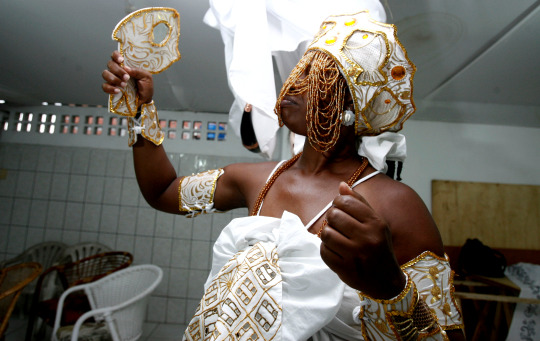
Orishas, also spelled Orisa, are natural forces or supernatural entities of the universe. These spirits are also referred to as deities or gods of the elements in the Ifa tradition of West Africa. They serve as conduits or intermediaries between humans and the Supreme Being (Olodumare) to benefit and help humans enjoy life.
There are innumerable Orishas in the Yoruba system and its derivatives. Some of the most popular Orishas are Orunmila, Eshu, Ogun, Obatala, Sango, Oya, and Yemoja. These spiritual forces embody elements of nature like the river, ocean, thunder, and wind. They are also linked to unique attributes such as wisdom, peace, love, health, and prosperity. Many people desire to connect with these beloved deities for these reasons and more.
COMMON ORISHA NAMES AND ATTRIBUTES
The following descriptions outline some of the major Orishas in the Ifa tradition and their attributes. Though keep in mind that these Orishas are revered in many traditions outside of Nigeria. And each society has its own beliefs surrounding the character and nature of these deities within their culture.
ORUNMILA
Orunmila is the Grand Priest of Ifa. He is the first Orisha to be reckoned with in the history of the Ifa tradition. Orunmila brought the wisdom of Olodumare (the Creator) to earth. The Yoruba people venerate Orunmila as a prophet of Ifa, the spirit of destiny, and Orisha of wisdom and knowledge.
ESHU
Eshu, also known as Esu or Elegba, is another prominent Orisha of the Ifa spiritual system. This deity understands all the languages spoken in the world and serves as a messenger between humans and the gods. As the harbinger of rewards and punishment, Eshu often instills a sense of fear or trepidation in some. He is known for his pranks, cruelty, unpredictability, and disruptions. Hence, he is often referred to as the ‘trickster god.’

Spirits of Africa Numerology Deck // Asanee 44
OGUN
Ogun is the elemental deity of iron, as he was a warrior during his sojourn on earth. He cleared the way for other Orishas to gain entrance to the planet using a metal ax and the help of a dog.
OSUN
Osun also spelled Oshun, is popularly referred to as the river goddess. Linked to purity, fruitfulness, fertility, calmness, and love, Oshun embraces the attributes of water. She also embodies human characteristics like jealousy, spite, and vanity.
OBATALA
Obatala is one of the most powerful and oldest Orisha in the Ifa religion. He is referred to as the king of white cloth as he is a tranquil judge. Greatly associated with forgiveness, honesty, peace, purity, and purpose, this Orisha is credited with the creation of humans.
SANGO
Sango or Shango governs the elements of thunder and lightning. He was once a king of the great Oyo Empire. And as such, Sango is one of the most revered Orishas in Yorubaland. The name Shango means to strike, and when annoyed, he brings thunder to burn the enemies or offenders of his children.
OYA
Oya is commonly known as the powerful goddess of storms. She comes before thunder in the form of lighting and is a favorite wife of Shango in some traditions. The name Oya means physical action or ‘she tore.’ Oya symbolically depicts the air that humans breathe as she can bring about life or death in the form of hurricanes, storms, or tornadoes.
YEMOJA
Yemoja is specifically a water spirit and is often depicted as a mermaid goddess. She is regarded as the mother of all the Orishas (deities) and the giver of life in the Ifa religion. She is believed to have originated from Tapa (Iganna) in the Oke Ogun area, Ogun State, Nigeria. Like Oshun, she is also known as a deity of fertility though her purview is the ocean rather than rivers. She protects sailors, dockworkers, fishers, swimmers, and others who travel by sea.
SUMMARY
As indicated, the Orishas in the Ifa tradition are innumerable. They are seen as the messengers of Olodumare, the Supreme Being. Each Orisha has its own distinct personality and set of characteristics that can be called upon to help guide an individual throughout life. Through offerings and rituals, individuals seek to honor and communicate with these powerful forces to receive guidance and direction.
As one grows in your knowledge and understanding of the tradition, one will encounter more and more Orishas. As such, one will grow and advance in knowledge about the character of these beings. And in turn, one can benefit from the many blessings and gifts of these sacred energies.
15 notes
·
View notes
Text
Film Review: The Woman King (2022)
In 19th century Africa in the Dahomey region, a legion of warrior women known as the Agojie defend the realm of King Ghezo. When the larger Oyo Empire and European colonialists threaten to invade and take over, it’s up to the Agojie to go into battle to ensure the Dahomey remain free.
Continue reading Film Review: The Woman King (2022)
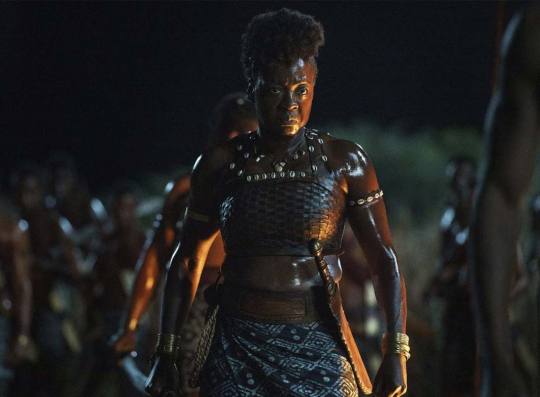
View On WordPress
3 notes
·
View notes
Text
The Story Of IGBO ORA Town In Yoruba
The Story Of IGBO ORA Town In OYO State – Where Every Family Has Multiple Set Of TwinsIt will interest you to know that there is a particular town in Nigeria where every household gas a twin. It is a thing of joy as many families always look forward to having twins regarding the belief that they are special blessings from God.It’s a curious, but little-known fact that the rate of twin births in…

View On WordPress
#history of yoruba#Ibadan#Ife#Nigeria#Oduduwa#Oduduwa republic#oyo#Oyo empire#villagespec#Yoruba#Yorubaland
0 notes
Text
This article has a neat summary of the overall history of the Oyo Empire:
To further examine the history of the Oyo Empire, it should be noted that it too inherited some of the same weaknesses as the Zulu and other militarized autocratic states, namely the habit in pre-industrial autocracies that if generals were not properly rigidly kept in line by terror they were likely to do the pronunciamento regardless of whether or not it destabilized the state. As with the Ummayyads taking down enfeebled Byzantine and Sassanian infrastructure, so did the Sokoto Caliphate emerge like the icheneumon wasp from a caterpillar weakened by putsch and civil war, not a strong state taken down by the heroic valor of Mujahideen.
That, of course, is how the Fulani prefer to remember it as people tend to exaggerate the strengths of their enemies to strengthen their own claims to glory. In this the Oyo Empire was not unique tot the same realities that afflicted other states like it, the distinction is that it was not European power that destroyed it but a Jihad launched by one of the many bloody-handed reformer imperialists a dime a dozen in Islamic history.
#lightdancer comments on history#black history month#military history#african history#sahelian history#oyo empire#fulani jihad
0 notes